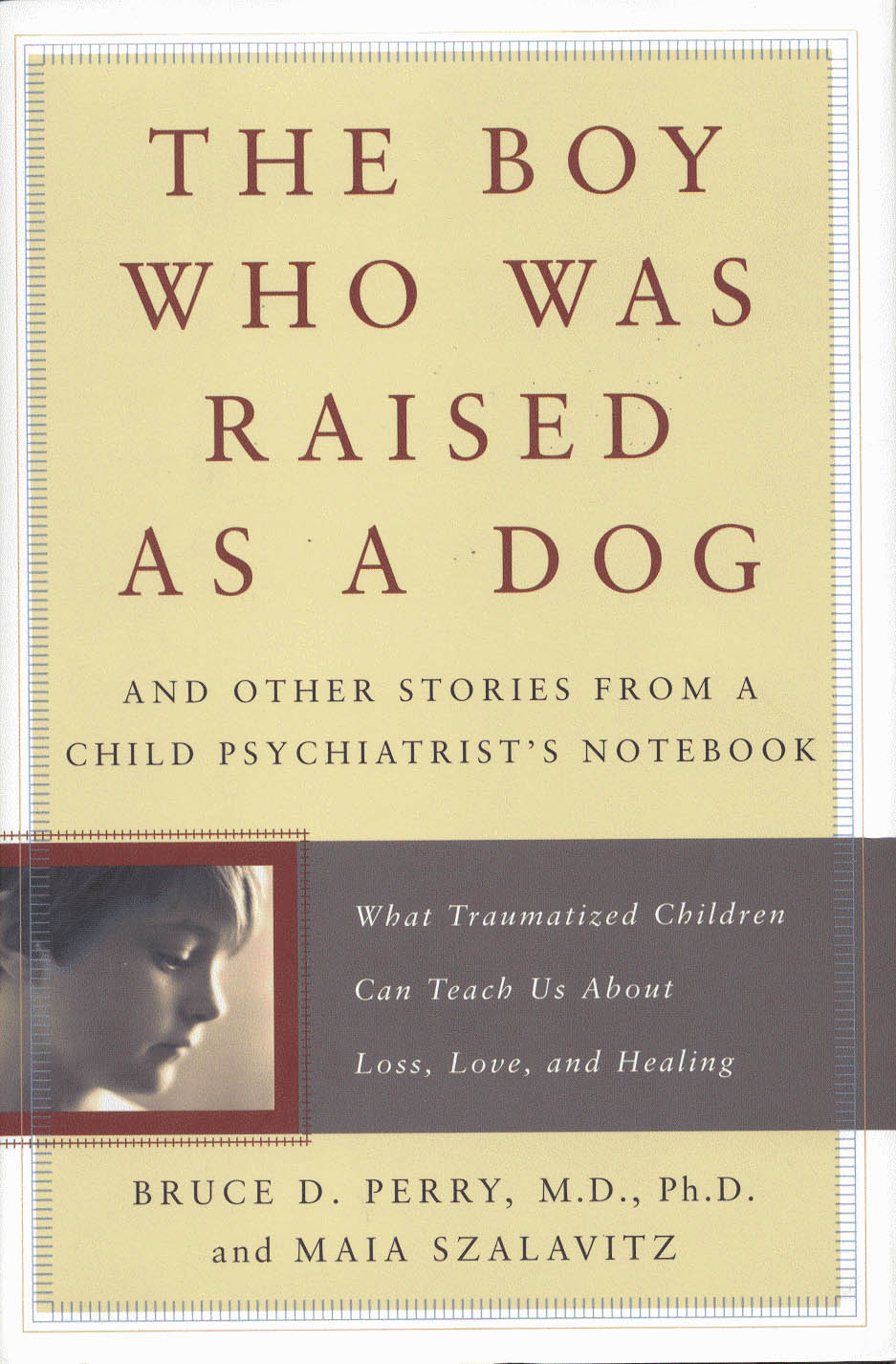|
Hardcover
US $26.00
CAN $31.50
UK £15.99
ISBN: 9780465056521
ISBN-10: 0465056520
Published by Basic Books
Description
What happens when a young brain is traumatized? How does terror, abuse, or disaster affect a child's mind--and how can that mind recover? Child psychiatrist Bruce Perry has helped children faced with unimaginable horror: genocide survivors, murder witnesses, kidnapped teenagers, and victims of family violence. In The Boy Who Was Raised as a Dog, he tells their stories of trauma and transformation through the lens of science, revealing the brain's astonishing capacity for healing. Deftly combining unforgettable case histories with his own compassionate, insightful strategies for rehabilitation, Perry explains what exactly happens to the brain when a child is exposed to extreme stress-and reveals the unexpected measures that can be taken to ease a child's pain and help him grow into a healthy adult. Through the stories of children who recover-physically, mentally, and emotionally-from the most devastating circumstances, Perry shows how simple things like surroundings, affection, language, and touch can deeply impact the developing brain, for better or for worse. In this deeply informed and moving book, Bruce Perry dramatically demonstrates that only when we understand the science of the mind can we hope to heal the spirit of even the most wounded child.
Critical Acclaim
- "A profound lesson in simple humanity." — O: The Oprah Magazine.
- "Fascinating and upbeat. In clear and beautiful language, this book explores the effects of trauma on the brains of children. Dr. Perry is both a world class creative scientist and a compassionate therapist. And many of the stories he and Szalavitz tell have surprisingly happy endings." — Mary Pipher, Ph.D., author of Reviving Ophelia and Letters to a Young Therapist
- "I have never encountered a child advocate with a better mind, a bigger heart or a more generous spirit than Bruce Perry. This book captures the essence of his insights and the heroism of his actions on behalf of children who have encountered the dark side of human experience." — James Garbarino, Ph.D., Maude C. Clarke Professor of Humanistic Psychology at Loyola University Chicago and author of Lost Boys: Why Our Sons Turn Violent and How We Can Save Them
- "Beautifully written, fascinating accounts… The stories exhibit compassion, understanding and hope as Perry paints detailed, humane pictures of [his] patients," — Publishers Weekly.
- "The Boy Who Was Raised as a Dog" is Bruce Perry's finest achievement, because it gives us all the opportunity to unlock the deepest mystery of our species: Why do some children "turn out" to be heroes, and others to be predatory sociopaths. This book is nothing less than the Rosetta stone of childhood trauma. Anyone who wants to understand childhood trauma (and its multi-faceted consequences) must read this book." — Andrew Vachss, award-winning author and attorney, founder and national advisory board member of PROTECT: The National Association to Protect Children
- "In this harrowing, but profoundly humane book, Szalavitz and Perry provide an all too timely, utterly engrossing account of traumatized children's lives…Once I opened it, I could not put it down." — Sarah Blaffer Hrdy, Ph.D., author of Mother Nature: Maternal Instincts and How They Shape the Human Species
- "I have admired and respected Bruce Perry for over a decade. His commitment to helping young children raised in chaotic and abusive environments is nothing short of remarkable. This book is an important tool in helping us understand the critical importance of early experiences in children's lives, and in showing us how to heal those who have been damaged by neglect. Anyone who deals with vulnerable or troubled youth – from social workers to judges, daycare workers to high school teachers, parents to politicians – can gain important perspectives from this book." — Rob Reiner, actor, director, former chairman of California Commission on Children
- "The Boy Who was Raised as a Dog' is a personal and scientific journey into the emerging science of the psychological and biological effects of trauma on child development. From his first tentative encounters as a young child psychiatrist-in-training through his extraordinary work with the Davidian children in Waco, Texas to his present center for the treatment of traumatized children, Dr. Bruce Perry shares his growing insights into how trauma shapes a child's brain and behavior. Weaving together their life stories with recent neuroscience on the developing brain, he makes a compelling case for both the incredible damage that these early experiences can cause and the remarkable ability of children to respond to adapt interventions supporting critical developmental needs. — Frank W. Putnam, MD, Professor of Pediatrics and Psychiatry, Cincinnati Children's Hospital Medical Center
- "Filled with compassionate, caring stories by a wise healer and scientist, this book will appeal to all who are interested in understanding how children heal." — Lynn Ponton, MD, Professor of Psychiatry at the University of California at San Francisco and author of The Romance of Risk
- "For many years, Bruce Perry's work has been deserving of our highest praise. Other than the young lives he has saved, this book may be his crowing achievement. It combines sophisticated information about the effects of trauma on the developing human brain, explained in very readable stories. It is sophisticated enough for the physicians, and easily understandable by anyone with sense and humanity. This is as good a book about psychiatry as you will ever read, and should be required reading for judges, pediatricians, child protective workers, foster parents, psychologists, nurses, social workers, and psychiatrists. If you work with kids, you had better know these lessons, and there is no better place to find them explained. Like its author, this book is the ultimate combination of science and humanity. Bruce Perry should win a Nobel Prize." — Joel A. Dvoskin, Ph.D., ABPP, University of Arizona College of Medicine, President, American Psychology-Law Society
|

